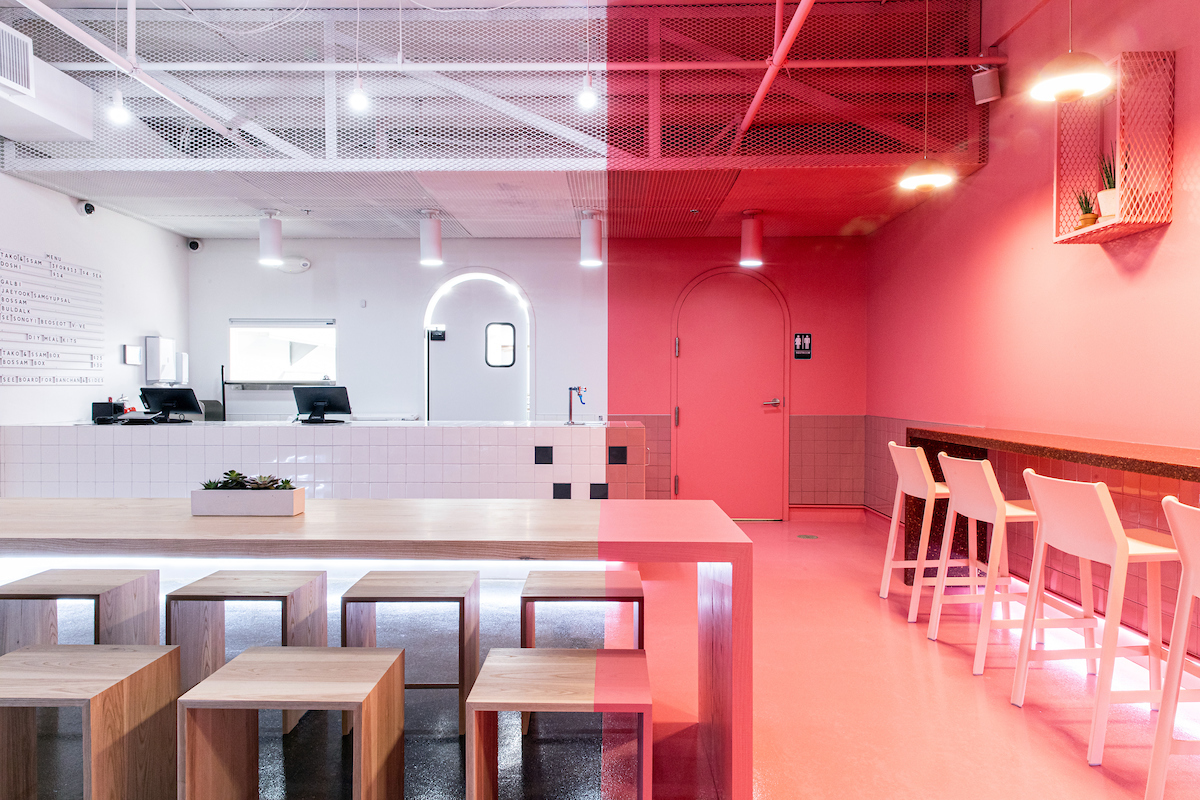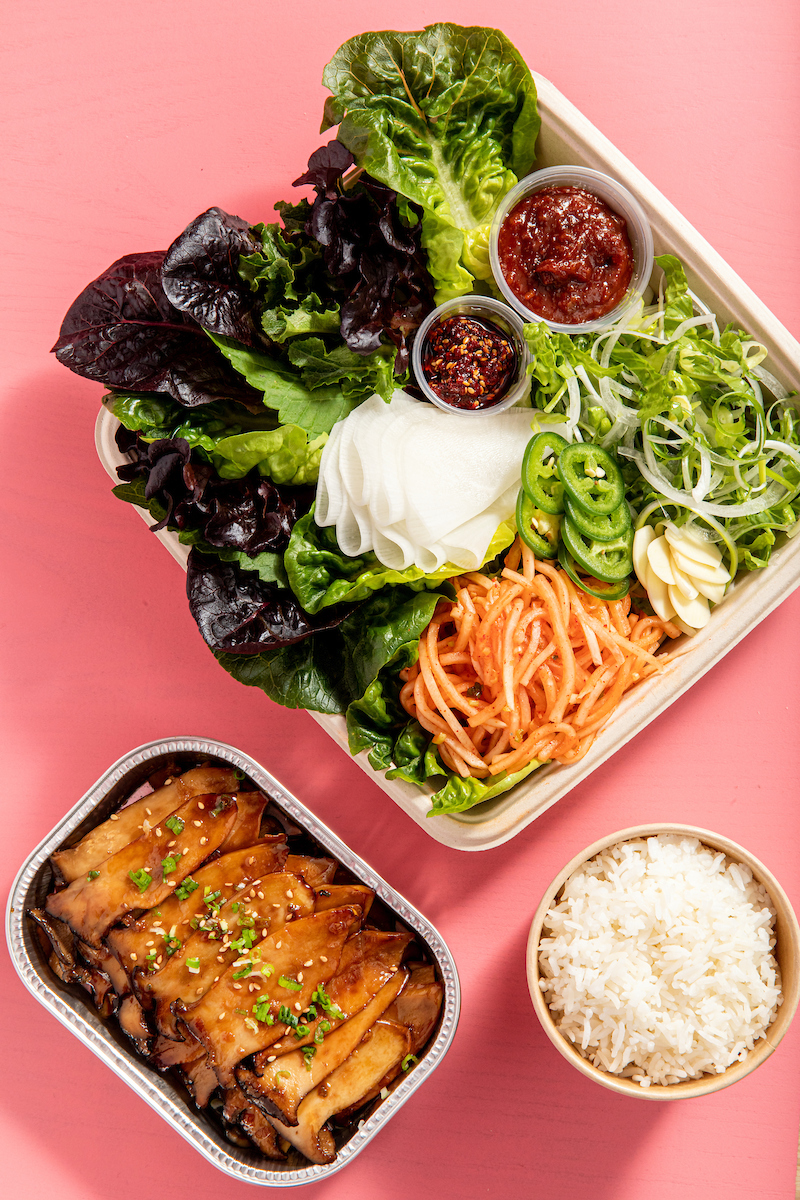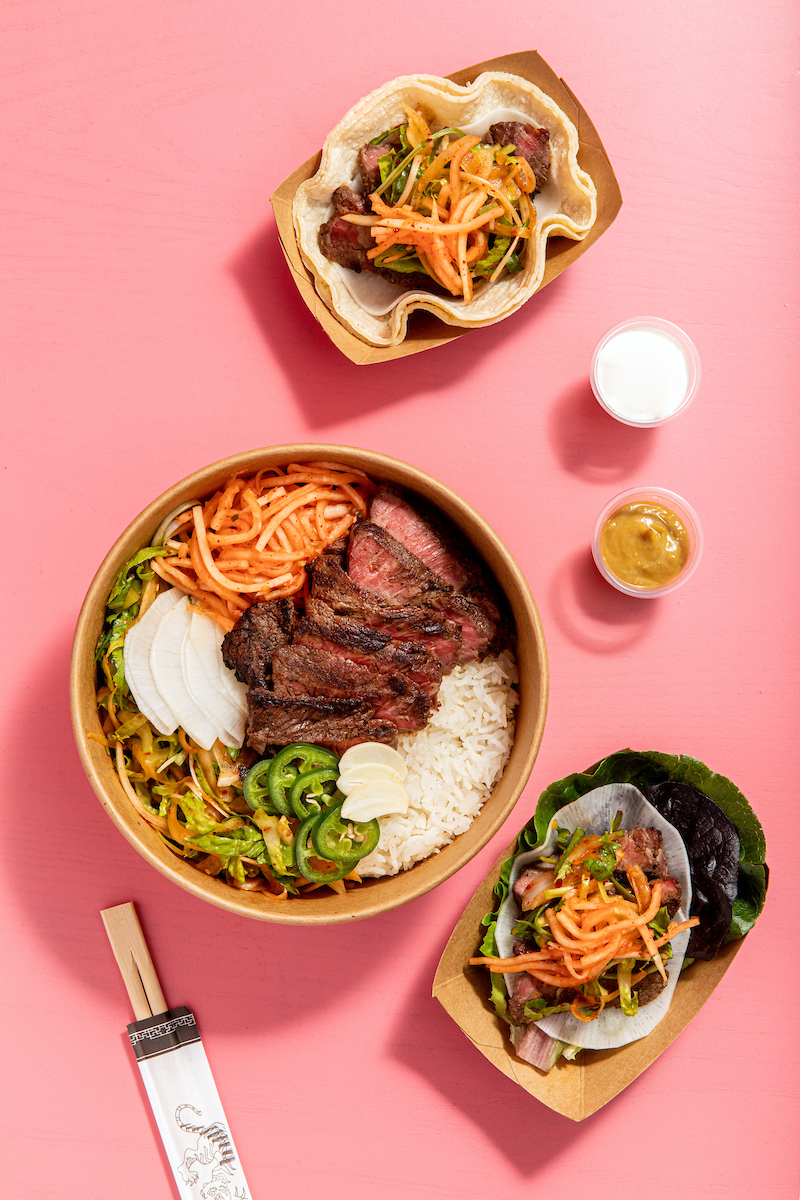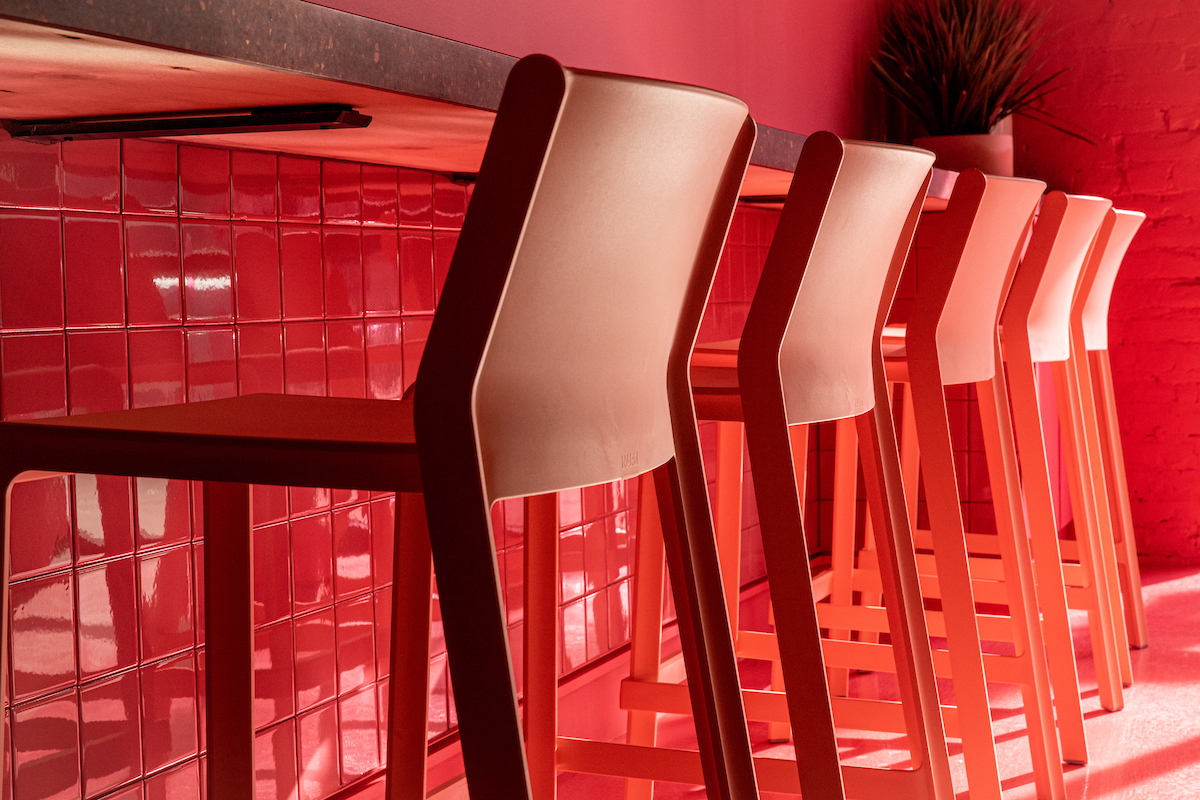
Throughout the first few months of the COVID-19 lockdown—as people began picking up pandemic pastimes like putting together puzzles and baking bread—The Local Fry owners Kevin and Elizabeth Irish started meal swapping with friends.
“For the first two months, one of my best friends cooked everything at home and was tired of eating her own food, so we decided to do a swap and made a Korean barbecue set for her,” says Elizabeth, who has also been putting together different types of banchan (side dishes that accompany a traditional Korean meal) for her friends. “It’s sometimes people’s first time having banchan outside of kimchi and pickled onions, so it’s exciting to be able to get creative with different dishes and see what people like.”
Aside from being a fun way to connect with friends during quarantine, the meal swaps have also provided an opportunity for Kevin and Elizabeth to test out some of the recipes for their forthcoming concept, Toki Tako, which will open its doors at the Rotunda in Hampden (just a few doors down from The Local Fry) in early January.
The fast-casual eatery will feature many of the traditional Korean barbecue meats that diners would recognize at a sit-down spot, but serve them tucked into handheld tortillas or ssam (lettuce wraps).
“Some people might think it’s Korean-Mexican fusion, but the flavors are very authentic Korean,” says Elizabeth, whose Korean-born mother was part of the inspiration behind the concept. “I love Korean food, and one of the things I say to my mom all of the time is that, when she’s gone, that connection to Korea is going to be lost. So I’ve been asking her for recipes. When we cook together, she teaches me things that I enjoyed eating as a child, but never knew how to make myself.”


Among the signature wraps that will incorporate those classic flavors will be a spicy pork belly taco with pineapple kimchi, white onions, and yuzu cream. Other dishes to look out for will include a rotating banchan menu, a vegetarian grilled King Oyster mushroom taco, galbi (grilled short rib marinated in a garlicky soy sauce), spicy tteokbokki (rice cakes) topped with melted cheese, and bossam—aromatic steamed pork belly that is traditionally eaten during the late-autumn Korean kimchi-making festival known as Kimjang. The owners will also offer DIY meal kits that allow diners to mix and match different proteins and vegetables.
Paired with the food, the design of the space is meant to transport visitors to an urban setting similar to modern-day Seoul. The husband-and-wife team worked with Baltimore’s PI.KL Studio to fill the restaurant with a pink and white color scheme, light woods, interior greenery, and custom furniture by local maker Luke Works. As a nod to the eatery’s name (Toki means rabbit in Korean), the interior also features arched doorways in the shape of bunny ears.
“When we were first talking about the space, [PI.KL] had inspiration pictures of Korean streetwear, and there was this image of a bright pink puffer jacket that just immediately caught our eye,” Elizabeth recalls. “We wanted something that was very bold and pop-in-your-face that Baltimore hasn’t seen. It sets this mood where it’s very intimate, but cool.”
The Irishes plan to open with a contactless carryout model while city restaurants remain shut down. But when indoor dining eventually resumes, service will be similar to The Local Fry—allowing patrons to order at the counter and hang out at one of Toki Tako’s five bar stools or its eight-seat communal table.

Elizabeth says that she and Kevin are looking forward to having both of their restaurants operate within such close proximity to one another.
“We’re very hands-on owners,” she says. “When people come in they see us on the line prepping food at The Local Fry, and when we open Toki Tako we’re going to be just as hands-on.”
As they approach The Local Fry’s six-year anniversary in January, Kevin and Elizabeth are looking forward to introducing the concept to their current regulars and new customers alike.
“I’m really looking forward to people trying the food,” Elizabeth says. “Koreans are known for barbecue and meat, but their daily meals are very vegetable and fish heavy—especially through banchan, which incorporates a lot of vegetables. I really want to showcase that side of the cuisine. We want to push that there’s more to Korean food than just meat and kimchi.”
